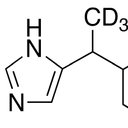The in vivo and in vitro study of polysaccharides from a two-herb formula on ulcerative colitis and potential mechanism of action.
キーワード
概要
BACKGROUND
Lycium barbarum and Astragalus membranaceus are two traditional medicinal herbs widely used in China for nourishing Yin and reinforcing Qi. The purpose of the study was to investigate the prophylactic and curative effects of crude polysaccharides (QHPS) extracted from a two-herb formula composed of Lycium barbarum and Astragalus membranaceus at a ratio of 2:3 in colitis rats, and to further elucidate the potential mechanism of action in epithelial cell proliferation in vitro.
METHODS
An acetic acid (AA)-induced ulcerative colitis rat model was applied in the study. Two independent protocols were used to assess the prophylactic and curative effects of QHPS, respectively, in which rats were either pre-treated with QHPS (0.18g/kg) for 14 days prior to AA induction, or post-treated with QHPS for 7 days after AA induction. The stool consistency and weight loss were used to evaluate disease activity. The morphological changes in intestinal mucosa at the end of the experiments were observed. The serum levels of endotoxin (EDT), diamine oxidase (DAO) and d-lactate (DLA), important biochemical markers for evaluating intestinal mucosal structure and function, were measured. In the in vitro mechanistic studies, rat intestinal epithelial cells (IEC-6) were used to access for epithelium regeneration.
RESULTS
The intra-colonic instillation of AA induced ulcerative colitis in rat, as indicated by diarrhea, weight loss, and colonic mucosal damage. Both prophylactic and curative treatments effectively reduced the weight loss and diarrhea and attenuated the colonic mucosal damage associated with inducible colitis. The significant increase in serum levels of DAO, DLA and EDT was induced by AA and inhibited by QHPS treatment. Moreover, QHPS could significantly stimulate IEC-6 proliferation in a dose-dependent manner (p<0.05).
CONCLUSIONS
The present study indicated for the first time that polysaccharides extracted from this two-herb formula can protect against experimental ulcerative colitis, presumably by promoting the recovery of the intestinal barrier.


